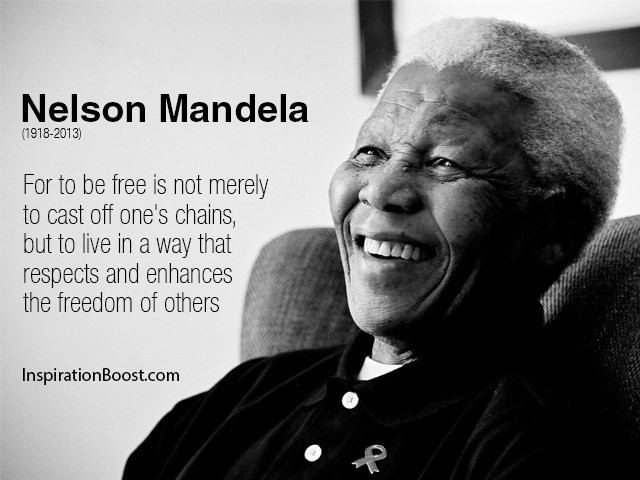Albert Einstein was once traveling from Princeton on a train when the conductor came down the aisle, punching the tickets of each passenger. When he came to Dr. Einstein, the professor couldn’t find his ticket. He searched every pocket, his briefcase, the seat next to him. No ticket.
The conductor said, “Dr. Einstein, I know who you are. We all know who you are. I’m sure you bought a ticket. Don’t worry about it.”
The conductor continued down the aisle punching tickets. As he was ready to move to the next car, he turned around and saw the great physicist down on his hands and knees looking under his seat for his ticket. The conductor rushed back and said, “Dr. Einstein, Dr. Einstein, don’t worry. I know who you are. No problem. You don’t need a ticket. I’m sure you bought one.”
Einstein looked at him and said, “Young man, I too know who I am. What I don’t know is where I’m going!”
I hope you know where you are going. If we believe the Scriptures, then we know that born again believers are going to heaven. Many people, Christians and not, over the years have asked me, “How can I know, how can I be sure that I am going to heaven?”
This is basic, but important. I think these three passages can most clearly describe what it means to be saved.
The first is from Jesus, who told Nicodemus, “Truly, truly, I say to you, unless one is born again he cannot see the kingdom of God.” (John 3:3) This does not describe how it happens, but rather what it is … namely, a rebirth. Just as we had a physical birth, so also, says Jesus, must we have a spiritual birth. In other words, not only must our body become alive, but also our spirit must come alive in a separate event. Thus, Jesus continued, “That which is born of the flesh is flesh, and that which is born of the Spirit is spirit.” (John 3:6) Up to the point of salvation, your spirit is dead, so to speak. So how does it come alive?
The other two verses say more about how it happens. The Apostle Paul says, “because, if you confess with your mouth that Jesus is Lord and believe in your heart that God raised him from the dead, you will be saved. For with the heart one believes and is justified, and with the mouth one confesses and is saved. (Romans 10:9-10)
And for the third, just to make sure we understand who does what, Paul says, “For by grace you have been saved through faith. And this is not your own doing; it is the gift of God, not a result of works, so that no one may boast.” (Ephesians 2:8-9) It requires God’s grace and our faith. And the fact that it is a gift indicates that God’s part is the greater part.
God offers the gift, for which Jesus Christ has already paid the price, but gifts are only put to use when the recipient stretches out their hands to receive it, this being an act of repentance, humility, and faith. When this happens, the Spirit of God enters into your spirit and your spirit comes alive! You are “born again.” The Holy Spirit of Christ is living in you and through you! I like this phrase, “Christ in you, the hope of glory.” (Colossians 1:27)
If these things you have done, then do not be embarrassed to ask the question about “how do I know I am saved and going to heaven?” You are not alone. Many Christians are not fully “at peace” until one more miracle occurs. Apparently, some believers in the New Testament had the same question.
Thus, there is one more piece. Besides having salvation, it is great to have an “assurance” of salvation, and to be at peace. And this is supplied by the Holy Spirit. So Paul wrote this to them, “The Spirit himself bears witness with our spirit that we are children of God, and if children, then heirs—heirs of God and fellow heirs with Christ, provided we suffer with him in order that we may also be glorified with him.” (Romans 8:16-17) How do I know for sure? We sang as children … “How do I know, the Bible tells me so!” But also, I know because I can hear, sense, and feel the Holy Spirit whispering assurance into my heart.
Come and join with me, children of God, and give thanks that we can be sure that we are saved; we are heirs, heirs with Christ, and heaven is our home!
There is one last testimony as a verification. We will indeed suffer with him in order that we may also be glorified with him. Yes, the life of faith involves suffering and hardship, but none greater than what our Master endured. And for this is offered all his glory for us to share, both now and forever.
Have a blessed weekend, including rest, family, and worship,
Chaplain Mark
NOTE … I know that there are people who will call me exclusive when I say that Christ is the only way to God. But I didn’t create this idea. I read it in the Bible, and I believe it. As my friend Dr. Bob Sanders used to say, “Don’t look at me! I didn’t write it! I’m just the messenger!”
ANOTHER NOTE: Please don’t use this devotional to scrutinize someone else’s life trying to figure if they are in heaven or not. Only God knows. Doing so can discourage you unnecessarily. Believe for the best, and wait.
